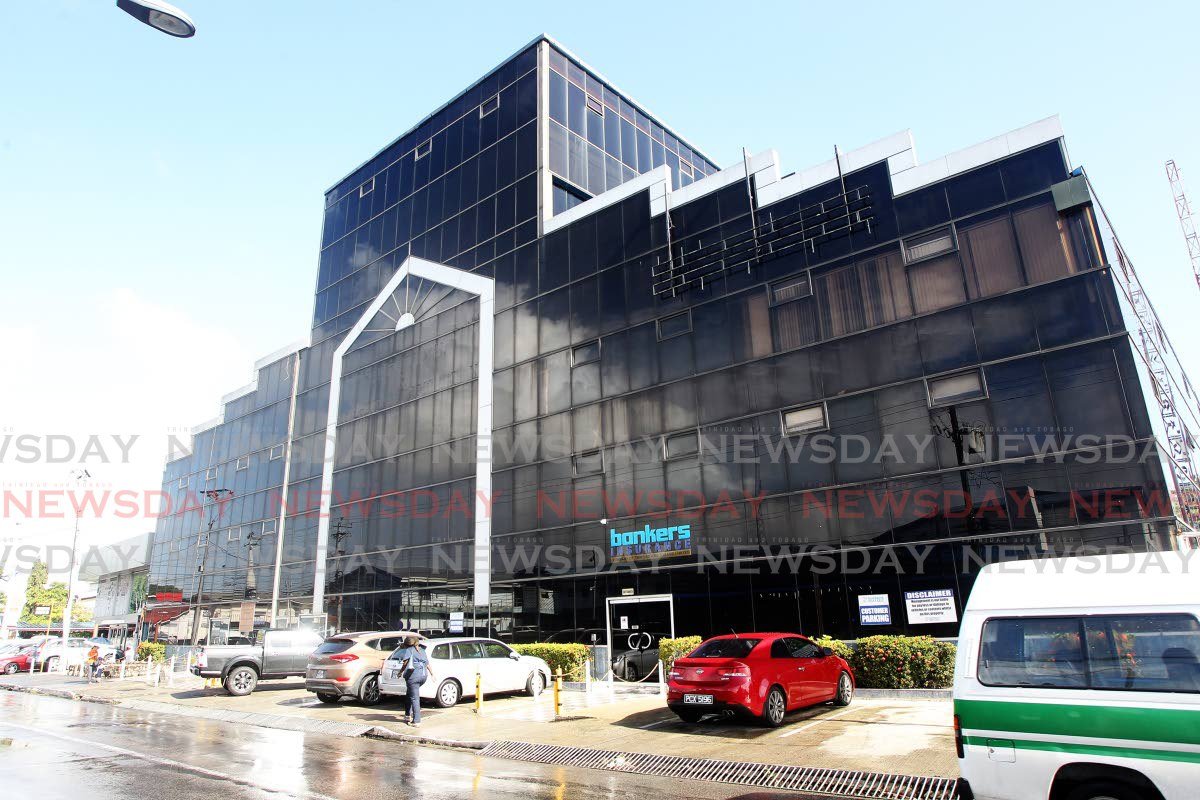Hindu Credit Union assets up for sale again

FORMER president of the Hindu Credit Union (HCU) Harry Harnarine wants his name cleared and believes that the only person who can do that is Labour Minister Jennifer Baptiste-Primus.
In a telephone interview with Sunday Newsday, Harnarine said the 2008 decision to liquidate HCU by the Commissioner of Co-operatives Charles Mitchell was challenged and the sale of HCU's assets should have stopped pending the outcome of that appeal.
The appeal, according to him and his attorney Farid Scoon, must be sanctioned by Baptiste-Primus.
Harnarine was contacted after a notice appeared in a newspaper that HCU's Financial Complex, located at Chaguanas Main Road, opposite the Chaguanas Market, was being auctioned. It is the second advertisement of HCU assets after ten properties were listed to be auctioned a few years ago.
This, he claimed, was just for the liquidator Dave Rampersad to get an idea of how much the public would be willing to pay for the properties. He said it was not as though the properties would be sold.
Sunday Newsday attempted to contact Rampersad for clarification but was told he was out of the office for the week. Messages left for him were not returned.
"What I want is for the matter to come to a close so my name will be cleared and the directors of the company to be fully cleared. The only way that will happen is when that arbitration (is) finished with the minister. I feel that is what a lot of them (labour ministers) fearful of, that all that was said about us in the enquiry was not so."
According to Harnarine, he wrote to three separate labour ministers beginning with Rennie Dumas, now deceased, Errol McLeod and Baptiste-Primus seeking a hearing of his appeal of the winding up of the company. Harnarine says he can prove that HCU was and is not insolvent, so the decision to wind up the company was flawed.

McLeod said he could not recall any appeal request but could not say that it did not take place. Baptiste-Primus said that matter was not under her purview but should be dealt with by the Commissioner of Co-operatives. Calls to the office of the Commissioner of Co-operatives, Angela McKenna went unanswered.
According to Harnarine, the assets of HCU stood at close to $1 billion, with the most profitable asset being Bankers Insurance, which he estimated is worth $175 million and is operating at a profit. HCU has some $790 million worth of properties and some $140 million in outstanding loans. He said the organisation is more than capable of repaying a multi-million dollar government loan used to pay shareholders.
The credit union went into liquidation in 2009, and in his 2010 budget presentation, then finance minister Winston Dookeran announced a bailout package worth $300 million. Depositors and shareholders were entitled to $75,000 under the rules of the Deposit Insurance Corporation, while depositors above $75,000 would be paid in equal annual instalments at a zero interest rate.
Harnarine said all depositors under $75,000 were paid in full, while those above were being paid in increments for 20 years.
In 2010, the People's Partnership government ordered a commission of enquiry to investigate the reason HCU and Clico collapsed.
Life after HCU
Since the winding up of HCU, Harnarine has faced several legal battles, most of them challenging Mitchell's decision to wind up the company. Harnarine, who has a degree in law, is now consulting with four companies on investments and, in some cases, matters of law. He did not name the companies.
"Look, I born and grow in Munroe Road, Cunupia, no police never come by me. Everybody in my village knows my lifestyle since I was working Clico to now is the same thing."
Harnarine boasted of turning the company into a billion-dollar empire from a struggling "$100,000". The empire can withstand scrutiny, he added, but his main hope is that other credit unions offer support to the HCU.
"If the appeal to the minister fails and we have to wind up and sell out all our assets to pay off our debt, when all is paid there would be a surplus of about $500 million. When that happens the extra money can't go back to the HCU and the Commissioner of Co-operatives can do what he wants with it. What I want is for it to go back to the people. The people who got back their monies can't get anything out of the surplus because they signed an agreement, so they have no rights to the HCU assets."
"I am just waiting to clear my name because it has been eight years, going on nine, and I haven't been arrested, charged, or even questioned. What does that mean? Everyone said I was a thief and I had properties in Florida and all over. I am not in a hurry, but I want my name cleared."
Findings of the Coleman report
Sir Anthony Coleman, in his July 2014 report, found that Harnarine disregarded several co-operative regulations and operated more like an investment bank.
Of HCU's 28 companies, which included a TV station, real estate company and security firm, all except Bankers' Insurance were operating at a loss. The subsidiaries survived off of internal loans. The internal loans to the subsidiaries totalled $211 million, none of which had been repaid and none of which could be repaid by the subsidiaries. A total of $195 million had been written off by the HCU board in May 2008. Properties were sold below market value in some cases so that recouping funds was problematic.
Under the heading Questionable Transactions, Coleman pointed out several discrepancies, including unpaid internal loans by board members, sale of properties below market value to relatives of Harnarine and large payouts to Harnarine and his relatives. Under the heading Reasons for the Collapse, some of steps that should have been taken to avoid the collapse were listed.
These included: The failure of the Commissioner of Co-operatives Department (CCD) up to 2006, particularly during the tenure as commissioner of Keith Maharaj, to enforce the regulatory requirements. The failure of CCD regularly and adequately to monitor the investments by HCU in subsidiaries and the reasons for successive major increases in HCU's maximum liability.
A lack of legislative powers to CCD and the failure for 14 years of successive governments to bring legislative reforms to establish an effective regulatory regime for credit unions, including powers of emergency intervention by the regulatory body together with powers to prosecute breaches of the by-laws was also a reason for the collapse.
Harnarine, who claimed he never saw the report, said after the collapse of HCU, there had been no changes to the Co-operative Societies Act that will change the way credit unions operate. He added that if what he did by divesting the assets of HCU was so wrong, why no legislative action was taken to ensure it never happened again.


Comments
"Hindu Credit Union assets up for sale again"